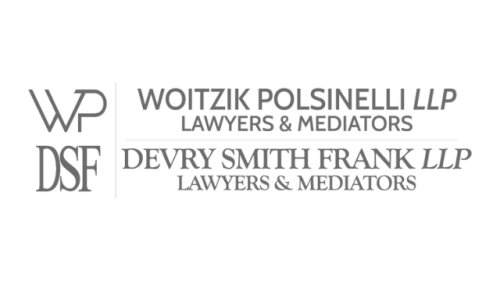Best Sanctions & Export Controls Lawyers in Whitby
Share your needs with us, get contacted by law firms.
Free. Takes 2 min.
List of the best lawyers in Whitby, Canada
Canada Sanctions & Export Controls Legal Articles
Browse our 2 legal articles about Sanctions & Export Controls in Canada written by expert lawyers.
- How Foreign Subsidiaries in Canada Can Meet 2026 Export Laws
- How Foreign Subsidiaries in Canada Can Comply With 2026 Export Controls Key Takeaways Navigating the 2026 updates to Canadian trade regulations requires foreign subsidiaries to localize their compliance protocols rather than relying entirely on global corporate frameworks. The revised regulatory environment enforces strict localized auditing and screening measures. Distinct Legal... Read more →
- Sanctions Compliance for Canadian Businesses - Trade Risks
- Canadian businesses are subject to strict liability under the Special Economic Measures Act (SEMA) and the Justice for Victims of Corrupt Foreign Officials Act (FAC), meaning intent is often irrelevant to a finding of a violation. All Canadian citizens and businesses, regardless of where they operate in the world, must... Read more →
About Sanctions & Export Controls Law in Whitby, Canada
Sanctions and export controls law in Whitby, Canada refers to the legal rules that regulate the import and export of goods, technologies, and services, especially where international relationships and security are concerned. These laws are primarily governed by federal and international regulations. They aim to ensure national security, fulfill Canada’s international obligations, and prevent support of unfavorable activities, such as terrorism or illegal weapons procurement. Businesses and individuals engaged in cross-border trade from Whitby need to follow these strict legal frameworks to avoid civil and criminal penalties.
Why You May Need a Lawyer
Legal help is often crucial when dealing with sanctions and export controls. Common situations where a lawyer's guidance is essential include:
- Exporting goods or technology outside of Canada, especially to high-risk countries or regions.
- Operating a business that imports products or resources subject to regulation.
- Receiving notices or allegations of sanctions violations from local or federal authorities.
- Negotiating contracts with international partners that may involve restricted goods or entities.
- Facing investigations or potential enforcement actions by government agencies.
- Implementing internal compliance programs to avoid inadvertent violations.
- Dealing with frozen or seized assets due to sanctions enforcement.
- Seeking government permits or licenses for exporting controlled goods.
A knowledgeable lawyer can help navigate the complexities, ensure compliance, and represent your interests before the authorities.
Local Laws Overview
While Whitby is governed primarily by federal law regarding sanctions and export controls, several local aspects are important to consider.
- The Export and Import Permits Act (EIPA) applies to businesses and individuals in Whitby, requiring permits for specific goods and technologies.
- Canada’s sanctions are mainly enforced under the United Nations Act, the Special Economic Measures Act (SEMA), and the Justice for Victims of Corrupt Foreign Officials Act (Sergei Magnitsky Law).
- Exporters must also comply with the Customs Act and regulations enforced by the Canada Border Services Agency (CBSA).
- Penalties for violations can range from administrative fines and forfeiture of goods to criminal charges.
- Residents and businesses in Whitby are subject to all national sanctions lists and must conduct due diligence before international transactions.
Given the potential overlap between local, national, and international regulations, legal advice is highly recommended to avoid mistakes.
Frequently Asked Questions
What are sanctions and export controls?
Sanctions are government-imposed restrictions on certain countries, organizations, or individuals, while export controls are laws regulating the movement of goods, technology, and services across borders. Both are used to support national security and foreign policy objectives.
Who regulates sanctions and export controls in Canada?
These laws are mainly regulated by Global Affairs Canada, the Canada Border Services Agency (CBSA), and other federal bodies. Provincial or local authorities generally do not have primary jurisdiction but may assist in enforcement.
Do sanctions and export control laws apply to individuals or just companies?
Both individuals and companies based in Whitby, or operating in Canada, must comply with sanctions and export control laws. Violations can result in penalties for both entities and individuals.
Are all exports from Whitby subject to permits?
Not all exports require permits, but certain goods, technologies, and destinations are controlled and need an export permit. It is important to check whether your specific shipment is regulated.
What are the consequences of violating these laws?
Consequences range from seizures of goods and administrative fines to criminal prosecution, significant monetary penalties, and even imprisonment.
What goods or technologies are typically controlled?
Controlled goods include military items, dual-use technologies, nuclear materials, select chemicals, and certain software or technologies that could be used for harmful purposes.
How do I determine if my product or transaction is subject to sanctions?
You should review federal government sanctions lists and regulations, or consult a legal professional with experience in sanctions and export controls to help assess your obligations.
Do Canadian sanctions apply if I am operating outside Canada?
Yes, in some cases Canadian law applies to Canadian citizens, permanent residents, or entities abroad, especially regarding serious sanctions and controlled goods.
How can a business in Whitby ensure compliance?
Businesses should implement internal compliance programs, regularly review trade partners and destinations, obtain necessary permits, and consult legal counsel when in doubt.
What should I do if I receive a notice of violation?
You should immediately seek legal advice. Do not respond or provide further information before consulting with a lawyer specializing in sanctions and export controls law.
Additional Resources
If you need more information or support on sanctions and export controls, the following resources and bodies can provide guidance:
- Global Affairs Canada: The main federal department overseeing sanctions lists, export controls, and permits.
- Canada Border Services Agency (CBSA): Enforces customs, import, and export laws.
- Canadian Association of Importers and Exporters: Provides information and networking for businesses in international trade.
- Office of the Superintendent of Financial Institutions: Monitors financial sanctions compliance for financial institutions.
- Local law societies: Can help you find a lawyer skilled in sanctions and export controls.
Next Steps
If you believe you need legal help regarding sanctions and export controls in Whitby, it is important to act quickly. Here are some steps you can take:
- Document any correspondence or regulatory notices you have received.
- Avoid making statements or submitting documents to authorities without legal representation.
- Contact a lawyer or law firm experienced in sanctions and export controls law in the Whitby area as soon as possible.
- Prepare any relevant contracts, permits, or records related to your export or import activities for review by your lawyer.
- Educate staff or business partners about the importance of compliance and potential risks.
Legal guidance is essential to protecting yourself, your business, and your reputation in this complex area of law.
Lawzana helps you find the best lawyers and law firms in Whitby through a curated and pre-screened list of qualified legal professionals. Our platform offers rankings and detailed profiles of attorneys and law firms, allowing you to compare based on practice areas, including Sanctions & Export Controls, experience, and client feedback.
Each profile includes a description of the firm's areas of practice, client reviews, team members and partners, year of establishment, spoken languages, office locations, contact information, social media presence, and any published articles or resources. Most firms on our platform speak English and are experienced in both local and international legal matters.
Get a quote from top-rated law firms in Whitby, Canada — quickly, securely, and without unnecessary hassle.
Disclaimer:
The information provided on this page is for general informational purposes only and does not constitute legal advice. While we strive to ensure the accuracy and relevance of the content, legal information may change over time, and interpretations of the law can vary. You should always consult with a qualified legal professional for advice specific to your situation.
We disclaim all liability for actions taken or not taken based on the content of this page. If you believe any information is incorrect or outdated, please contact us, and we will review and update it where appropriate.









